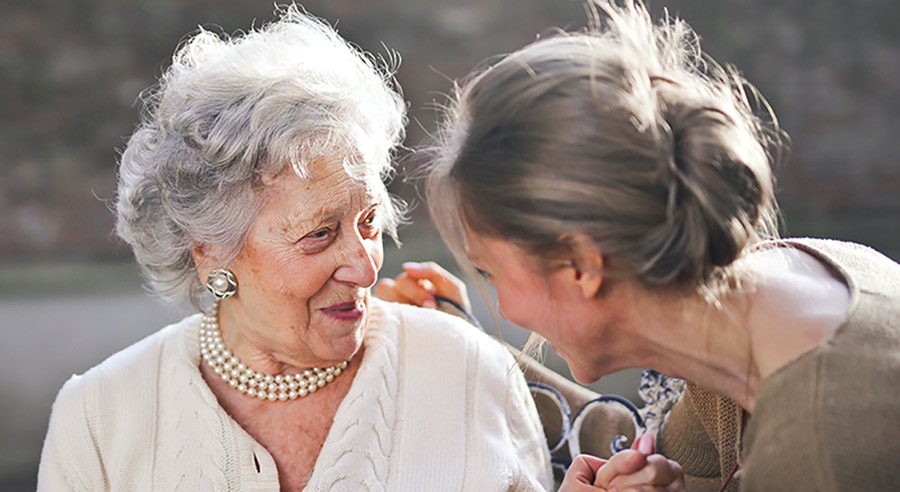Top Home Care Providers in Australia: Discover the Best In Home Caregivers for Your Requirements
Top Home Care Providers in Australia: Discover the Best In Home Caregivers for Your Requirements
Blog Article
Just How In Home Care Givers Address the One-of-a-kind Challenges and Psychological Needs of Households Looking For Support for Their Family Members
At home caregivers play a crucial duty in browsing the complexities dealt with by families seeking support for their loved ones. By recognizing unique household characteristics and supplying tailored psychological assistance, these professionals not just address instant treatment requirements but also promote a setting of count on and open interaction (home care providers).
Comprehending Family Characteristics
Recognizing family characteristics is crucial for giving efficient in-home care, as each household operates within an one-of-a-kind set of interactions and relationships. These dynamics encompass various elements, including interaction styles, roles, and class structure that influence just how treatment is provided and received. The caregiver should acknowledge these variables to make sure that care plans straighten with the family members's values and expectations.
Different households may display distinct patterns of interaction, such as joint strategies or ordered structures. In some family members, a primary decision-maker might hold considerable impact, while in others, choices may be a lot more autonomous. Recognizing these patterns helps caregivers customize their strategies to fit the family's details needs.
In addition, social histories play a vital duty in forming family characteristics. Caregivers need to be culturally experienced, acknowledging and respecting diverse methods and beliefs that might impact care choices.
Inevitably, an extensive understanding of family members characteristics assists in enhanced communication, promotes trust fund, and enhances the caregiver's capacity to sustain the household efficiently. By identifying the elaborate internet of duties and relationships, caretakers can create a supportive atmosphere that advertises health for both the specific receiving care and the family members in its entirety.
Offering Emotional Assistance
Giving emotional support is an essential component of at home care that significantly enhances the health of both the individual obtaining care and their relative. In the context of caregiving, emotional assistance includes active listening, compassion, and recognition of feelings. Caregivers are educated to recognize the psychological battles that households deal with, such as shame, anxiety, and isolation, and to give a thoughtful presence that minimizes these worries.
By promoting open interaction, caretakers create a secure area for family members to reveal their worries and concerns. This dialogue not just urges emotional launch yet additionally enhances trust fund between the caregiver and the household. Additionally, caretakers can provide practical approaches to help families take care of tension and promote durability.

Ultimately, the psychological assistance provided by in-home caretakers enhances the lifestyle for both customers and their families, advertising a much more thoughtful and understanding caregiving atmosphere. This holistic approach ensures that emotional demands are dealt with along with physical health and wellness considerations.
Taking Care Of Daily Treatment Tasks
Managing daily care jobs is an essential facet of in-home care that guarantees people get the support they require to keep their wellness and self-reliance. Caregivers play an essential duty in helping with activities of daily living (ADLs), that include showering, clothing, brushing, and meal prep work. By handling these obligations, caregivers help ease the emotional and physical problems that family members might encounter while looking after their liked ones.
In addition to personal care, caretakers are likewise tasked with drug management, ensuring that customers more info here abide by prescribed dosages and timetables. This oversight is critical for maintaining wellness and avoiding damaging impacts her latest blog from missed or incorrect drugs. Caretakers usually help with mobility, giving assistance for clients relocating around their homes, thus minimizing the threat of drops and boosting total security.

Cultivating Open Interaction
Reliable management of everyday treatment jobs typically depends upon the top quality of interaction in between caretakers, clients, and their households. Open communication fosters an atmosphere where worries, choices, and feedback can be openly traded, guaranteeing that care is customized to fulfill private demands. Caretakers must focus on regular check-ins with both customers and their households, facilitating conversations that resolve any type of concerns or adjustments in care needs.
Utilizing various interaction approaches-- such as in person conferences, call, and created updates-- can improve understanding and provide households with satisfaction. It's vital for caretakers to proactively pay attention, demonstrating compassion and regard for the psychological landscape of the household. Urging questions from relative can likewise assist make clear care strategies and reinforce the caretaker's commitment to openness.
Moreover, preserving open lines of communication makes it possible for caretakers to recognize and react promptly to any type of changes in a customer's health and wellness standing or psychological well-being. This positive method not just reinforces the caregiver-client dynamic yet additionally empowers households to take part actively in the treatment procedure. Ultimately, promoting open interaction is essential for improving the top quality of in-home treatment and promoting a helpful ambience for all involved.
Structure Trust and Relationships
Depend on is the foundation of successful at home care, as it establishes a structure for meaningful relationships between caretakers, customers, and their families. Structure this trust calls for regular, clear interaction and a genuine dedication to the well-being of those entailed. Caretakers have to show reliability through preparation, adherence to care plans, and responsiveness to the demands and preferences of clients.
To cultivate trust fund, caretakers should take part in energetic listening, guaranteeing that family members really feel listened to and recognized. This includes not only attending to immediate concerns but likewise preparing for future needs, consequently empowering households and improving their sense of control. Developing connection with right here shared experiences and considerate interactions can better solidify these connections.
Additionally, caretakers have to be educated to acknowledge and address the psychological complexities encountered by family members. By revealing empathy and empathy, they can reduce anxieties and unpredictabilities, strengthening trust fund. Regular updates and check-ins with relative can additionally enhance openness, enabling them to really feel engaged and informed about their enjoyed one's care.
Ultimately, constructing trust and nurturing partnerships in at home care is a joint process that significantly influences the quality of treatment supplied, cultivating an encouraging atmosphere that profits everybody involved.
Verdict
At home caregivers play an important function in resolving the distinct obstacles and psychological needs of households. By understanding family dynamics, offering psychological assistance, and promoting open interaction, caretakers enhance the general caregiving experience. Their ability to take care of everyday care jobs while developing trust fund and solid connections grows a supportive setting for customers and their families. Ultimately, the thoughtful engagement of caretakers substantially adds to improved well-being and resilience for those browsing the intricacies of caregiving.
Comprehending family characteristics is important for providing effective in-home treatment, as each household operates within a distinct collection of interactions and relationships.Giving emotional assistance is an important component of in-home care that considerably boosts the health of both the private getting treatment and their household members. By taking on these duties, caregivers aid alleviate the psychological and physical burdens that family members may face while caring for their enjoyed ones.
Effective administration of day-to-day care tasks usually hinges on the quality of communication in between caregivers, clients, and their family members - ndis plan manager.Trust fund is the foundation of effective at home care, as it develops a structure for significant partnerships between caregivers, clients, and their households
Report this page